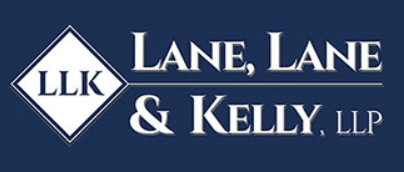With trusts being the preferred estate planning tool for many of our clients, we are frequently asked whether it’s smart to name an individual as Trustee, such as a family member or close friend, or if it would be more prudent to name a professional trustee, such as a bank, law firm or corporate trust department. To help you more confidently navigate the trustee decision, here we outline the duties of a Trustee, the potential consequences of inattentiveness or neglect, and the pros and cons of choosing an individual trustee versus professional Trustee.
Understanding the Responsibilities of a Trustee:
The amount of responsibility that a Trustee has should not be taken lightly. A Trustee has a variety of responsibilities such as:
- Prudently invest and manage the trust’s assets;
- Properly pay and file Massachusetts and Federal taxes;
- Correctly interpret and follow the terms of the trust; and
- Properly distribute assets to or for the benefit of the beneficiaries of the trust in accordance with the Commonwealth of Massachusetts’ laws and the terms of the trust document.
These are some of the fiduciary responsibilities – meaning, that if a trustee makes a mistake, it’s up to them to fix that mistake – out of their own pocket, which makes the selection of Trustee critical to the success of your estate plan.
Advantages & Disadvantages of Selecting an Individual to Serve as Trustee
For clarity, when we say “selecting an individual” we are referring to naming one or more family members or friends to act as Trustee or Co-Trustees.
|
Individual Trustee |
|
|
Advantages |
Disadvantages |
|
Familiarity with the family. Often people choose a family member as Trustee as a way to “keep it in the family.” They assume that the person they select has insights into family dynamics that will enable them to anticipate issues, navigate personalities, and generally keep the peace. |
Unequal power. Unfortunately, such assumptions are often wishful thinking. In reality, layering a business relationship over a familial one, or even just elevating one person into a position of authority over other family members can have disastrous consequences. |
|
Greater influence over distributions. Can typically make more informed judgment calls about discretionary distributions. |
Lack of expertise. Individual trustees often have limited legal and investment knowledge. Where experience is lacking, a professional Trustee need to be hired. |
|
Lower costs. As a general rule, an individual trustee will not charge what an attorney or other professional Trustee would that is entitled to charge a fee. The danger here is that it risks the resentment of other beneficiaries if they do and resentment on their own part if they don’t. |
Undue influence. Beneficiaries can have undue influence over the decisions of the trustee, creating potential risk for your estate. This includes unrelated beneficiaries (spouses, in-laws) and non-beneficiary relatives, adding to what can be undue stress on the family dynamic. |
Advantages & Disadvantages of Selecting a Professional to Serve as Trustee
|
Professional Trustee |
|
|
Advantages |
Disadvantages |
|
Continuity. In general, a professional trustee provides a greater guarantee of uninterrupted service. A professional Trustee is rarely unable to fulfill their obligations, and – if something does happen –they will always have a successor professional Trustee in place who can step in to take over. |
Lack of family knowledge. A professional Trustee isn’t likely to have an in-depth understanding of individual family member’s personalities and behavioral traits or of the various relationships and history between family members. This can certainly put a professional Trustee at a disadvantage in some circumstances, but in most cases being able to remain at arm’s length from any interpersonal entanglements winds up having a positive effect on the overall management of the trust. |
|
Objectivity. The value of unbiased decision making cannot be overstated. Professional Trustees have formal protocols that ensure objectivity, which is critically important not only in day-to-day management, but also (and especially!) when there are conflicts that need to be resolved. |
Lack of empathy. On a similar note, some folks might be uncomfortable with a professional Trustee who – lacking any personal connections to the family – may not be as sympathetic or empathetic as a family member might be. Again, this can sometimes cause discomfort, but it can just as likely serve to provide that crucial impartiality that is so necessary when dealing with complicated questions and conflicts |
|
Requisite Skills and Knowledge. A professional Trustee is just that – a professional. This person has the training and experience to not only expertly bear the inherent responsibility of managing a trust, but they are also able to provide critical guidance at every juncture, giving all family members a greater peace of mind. |
Higher Costs. Professional Trustee fees can initially seem expensive when compared to having a family member act as Trustee for free. But the old adage “you get what you pay for” often turns out to be an accurate commentary on such situations. Is avoiding up-front fees worth taking on the risk of a family member making inexperienced or ill-informed decisions that end up costing beneficiaries much more in lost assets or even lawsuits? |
|
Deep Professional Resources. Since a professional trustee is usually either part of a larger organization or partnered with one, they have fast and easy access to a broad range of supplemental resources they can call on as needed to navigate and resolve complex issues or unanticipated crises. |
Loss of Control. It is unsurprising that families sometimes feel unsure about handing control of their assets to a third party. The key to putting everyone at ease is to do your due diligence when selecting a professional Trustee and ensure that the person and organization you choose is someone who will not only respect your family’s wishes, but who will also partner with you in a way that puts everyone at ease. |
A professional Trustee is generally a bank, a trust company, law firm or other professional.
Can You Have Both an Individual Trustee and Professional Trustee?
If you like certain aspects of an individual trustee, but worry about lack of experience, and also like certain aspects of a professional trustee, but aren’t confident that an outsider can manage the family dynamic, you can set up an arrangement whereby an individual trustee and professional trustee work in partnership as equal but separate co-trustees. This is especially advantageous in situations where important decisions need to be made or special situations need to be managed.
This approach can benefit both individual and professional trustees. The individual trustee, who normally maintains a better understanding of the uniqueness of each family member, can educate the professional trustee and act as intermediary for other beneficiaries. The professional trustee, on the other hand, can provide those specialized services where experience can make a big difference.
Finally, this dual approach brings a stronger element of continuity to the management of your estate by allowing one trustee to back up the other in the event of resignation or death.
Conclusion
When choosing between an individual trustee and professional trustee, one must weigh all the options prudently. Cogitate each pro and con, benefit and drawback. Careful consideration must be given to the best trustee for the job at hand giving the types of assets administered, Settlor and beneficiary dynamics, longevity of the trust and the requirements of the trust instrument, in order to make the decision that is best for you.
If you have any questions or need additional information on this topic, please contact our office.
This blog is made available for educational purposes only as well as to give you general information and a general understanding of the law, not to provide specific legal advice. By reading this blog you understand that there is no attorney client relationship between you and Lane, Lane & Kelly, LLP.

Matthew B. Lane
Matthew is an Attorney at Lane, Lane & Kelly, LLP. Matthew attended Rensselaer Polytechnic Institute obtaining his undergraduate degree in Business & Finance in 2016, graduating with Magna Cum Laude honors, and later graduated from Suffolk University Law School in May 2025 with Cum Laude Honors. Matthew primarily practices in the areas of Estate Planning, Probate & Trust Administration, and Real Estate Conveyancing.


